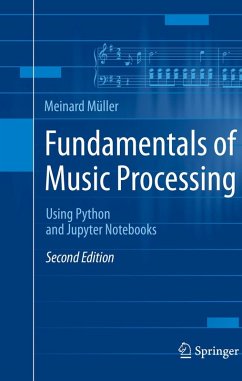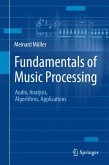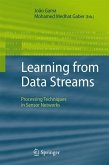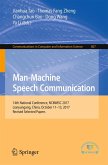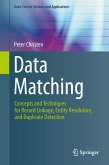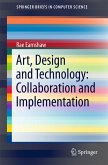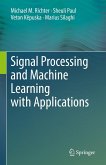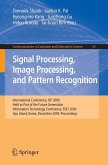The book consists of eight chapters. The first two cover foundations of music representations and the Fourier transform-concepts used throughout the book. Each of the subsequent chapters starts with a general description of a concrete music processing task and then discusses-in a mathematically rigorous way-essential techniques and algorithms applicable to a wide range of analysis, classification, and retrieval problems. By mixing theory and practice, the book's goal is to offer detailed technological insights and a deep understanding of music processing applications.
Asa substantial extension, the textbook's second edition introduces the FMP (fundamentals of music processing) notebooks, which provide additional audio-visual material and Python code examples that implement all computational approaches step by step. Using Jupyter notebooks and open-source web applications, the FMP notebooks yield an interactive framework that allows students to experiment with their music examples, explore the effect of parameter settings, and understand the computed results by suitable visualizations and sonifications. The FMP notebooks are available from the author's institutional web page at the International Audio Laboratories Erlangen.
"This second edition extends the great first edition of "Fundamentals of Music Processing" to offer easy-to-use Python codes applied to concrete music examples. This book continues to be an invaluable source for education and research in music information retrieval (MIR)." (Masataka Goto, PrimeSenior Researcher, National Institute of Advanced Industrial Science and Technology (AIST), Japan)
"The addition of free online Jupyter notebooks for the second edition has made the best even better! Buying and using Meinard Müller's book is really more an investment than a purchase. It helps learners at all levels to deeply understand the theory and practice of Music Informatics research. Here at the Centre for Digital Music, we recommend it to our MIR PhD students and to our Masters students." (Mark Sandler, Director of the Centre for Digital Music (C4DM), Queen Mary University of London, UK)
"In the years since it was first published, Fundamentals of Music Processing has become the required reading for those wishing to enter (or brush up on their knowledge of) the field of music information retrieval. This is even more true now with the timely addition of the FMP notebooks, a welcome addition that makes Müller's seminal textbook even more accessible and significant." (Juan Pablo Bello, Professor, Music Technology and Computer Science & Engineering, New York University, USA)
Dieser Download kann aus rechtlichen Gründen nur mit Rechnungsadresse in A, B, BG, CY, CZ, D, DK, EW, E, FIN, F, GR, HR, H, IRL, I, LT, L, LR, M, NL, PL, P, R, S, SLO, SK ausgeliefert werden.
"If you are looking for a sound textbook in music analysis and music information retrieval, I would recommend this one. ... The book may be used as a textbook at the postgraduate or advanced undergraduate levels in computational music science. It is also suitable for musicologists and researchers in music. Those with engineering backgrounds will find it easier to grasp. I enjoyed reading this book." (Soubhik Chakraborty, Computing Reviews, March, 2016)

